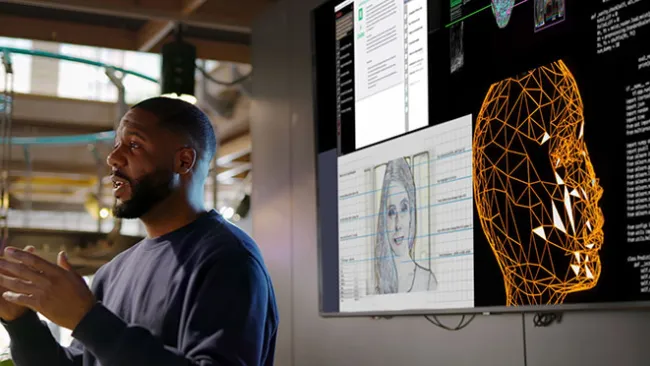Deep in the throes of their busiest time of year, no one feels the approach of the year-end more intensely than retailers. But as the dust settles and 2025 begins, retail brands will have exciting opportunities (and a few challenges) when it comes to harnessing AI’s power to improve customer experience.
With more data and insights at their fingertips than ever before, brands have an unprecedented chance to understand their customers better, manage their contact centers more efficiently, and maximize the value of customer interactions.
Here are a few ways AI can uncover efficiencies, improve satisfaction, and drive revenue opportunities.
1. Managing sudden volume spikes
There’s no denying the value retailers can reap from social selling. TikTok Shop alone is revolutionizing how a generation of consumers shops. The platform lets TikTok users craft curated lists of their favorite products so other users can browse the lists and buy the products.
This trend brings enormous opportunities for retailers to reach new, broader audiences that are a great fit for their demographics. But it also brings a major challenge: volume spikes have suddenly become much more unpredictable. In most cases, there’s no telling when an influencer might endorse a handbag, for instance — and when it happens, the retailer behind that bag will be flooded with customer inquiries.
Unpredictable surges can wreak havoc on retailers: handle times grow, customer (and associate) frustration mounts, and product inventory dwindles quickly — which only leads to more contacts and frustration. It can become a vicious cycle unless brands have a plan in place for dealing with these surges when they strike.
AI-powered tools can help. For basic inquiries that need fast, simple answers, AI bots can get customers the information they need. But AI can also do so much more than that.
AI-enhanced associate-assist tools can facilitate faster resolutions in the contact center. AI can gauge customer sentiment. It can listen to all customer interactions, in real time, and identify patterns and opportunities. With that knowledge, it can generate standardized responses based on those learnings and serve them up to associates when they need them.
As we head into 2025 and beyond, AI agents will become increasingly common in contact centers. Most shoppers don’t want to talk to a person for customer support unless it’s absolutely necessary. AI agents are poised to take over the bulk of Tier 1 interactions, especially as they continue to grow smarter, more predictive, and easier to integrate into CX systems.
AI can also help retailers manage surges by helping them ramp up support quickly when needed — and not always through additional headcounts. Technologies like real-time translation and accent softening let brands seamlessly deliver multilingual customer support from anywhere in the world without additional hiring.
2. Maximizing the value of customer interactions
Many retailers have a lot of untapped value in their CX operation. Whether they need to address cart abandonment issues or uncover hidden sales opportunities within service interactions, they’re missing out on potential revenue.
To decrease cart abandonment, retailers must determine why customers are leaving before they complete their purchases and have a proactive strategy for reaching out to them. AI can help streamline outreach efforts and reveal patterns in customer data.
Service to sales is another area that holds a lot of promise. Most (65%) service interactions have potential sales opportunities, but many companies don’t know how to identify and capitalize on them. A strong service-to-sales strategy is a must.
Use AI-enhanced quality and insights tools to listen to customer interactions and identify possible selling, upselling, and cross-selling opportunities. With the right tools in place, associates can stop wasting time on sales efforts that won’t be fruitful and instead focus those efforts on customers and interactions that are most likely to convert into sales.
3. Better, faster training and coaching
To manage volume surges with ease, maximize value in the contact center, and deliver the type of always-on and seamless support customers expect, retailers need the right people interacting with customers.
Retailers need to hire associates with the right mix of hard and soft skills and ensure they’re ready to hit the ground running.
AI-powered training solutions can make associate training and coaching much more effective. And once associates are up and running, use AI-powered quality and insights tools to gauge how they’re performing, identify what separates top performers from bottom ones, and tweak coaching accordingly.
One example is when a luxury retailer relied on traditional quality assurance measures that only gauged about 1% of its total interactions, meaning the brand was missing out on valuable insights. By implementing AI tools that listened to 100% of interactions, our quality experts helped the brand reduce by 60% the amount of time it took team leads to find coachable interactions. We also used automation to reduce the time it took to extract coaching data by 94 hours per month — all while uncovering $489,000 in potential annualized savings.
Invest in AI tools that can make employee onboarding, training, and coaching easier and more customized. The results? Faster speed to proficiency, improved employee experience, and greater customer satisfaction.
Embrace the AI-powered CX era
As 2025 approaches, AI has evolved from theoretical to a contact center essential. AI-powered tools and the insights they produce are already proving their worth and driving real-world results in the retail industry. The positive outcomes they produce have become undeniable.
Making sense of all the options out there might seem daunting. Working with an expert CX partner that specializes in retail can help brands navigate the ever-growing list of technologies and tools.
When deciding where to invest in AI, brands should ensure their decisions are always guided by their customer journey. Investing in tools merely for technology’s sake won’t produce meaningful results, and may cause more problems than they solve, so it’s crucial that CX investments stay customer-centric in the new year and beyond.















